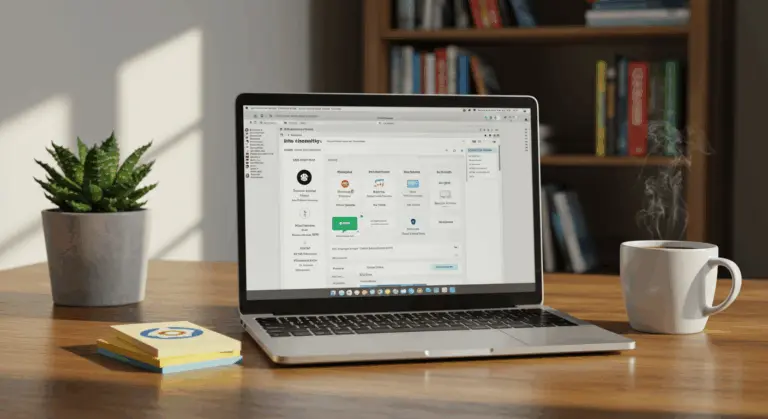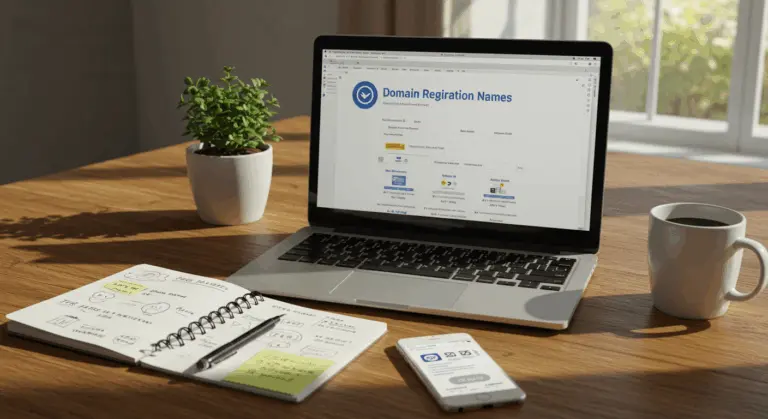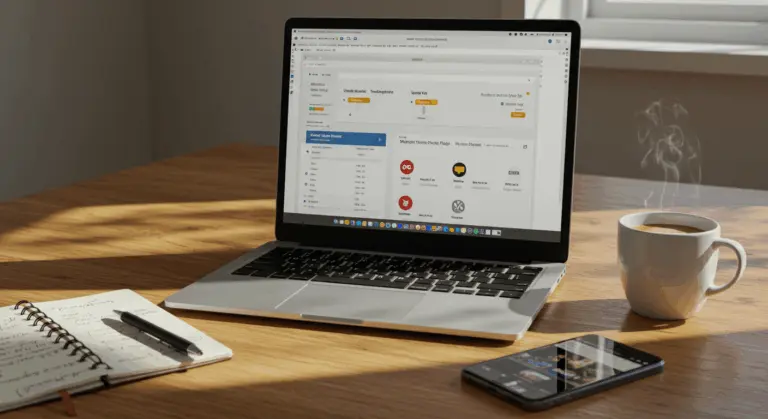Why Buy a Domain Name Anonymously?
In our interconnected digital landscape, safeguarding your personal information is increasingly important. When you register a domain name, your personal details—name, email address, phone number, and physical address—become part of the WHOIS database, a publicly searchable repository accessible to anyone with internet access.
There are several compelling reasons to consider anonymous domain registration:
Privacy Protection : Maintaining privacy shields you from identity theft, phishing attacks, and various risks that emerge when personal data becomes publicly accessible.Preventing Unwanted Communication : Anonymous registration dramatically cuts down on spam emails, robocalls, and junk mail—the inevitable consequences of public contact information exposure.Business Security: Entrepreneurs and individuals developing confidential projects gain significant advantages through anonymous registration. It prevents competitors from discovering strategic plans prematurely, giving them space to develop concepts without unwanted scrutiny.Protection Against Domain Hijacking : Public information creates opportunities for malicious actors to attempt unauthorized domain transfers. Privacy protection acts as an important defense against such threats.
Anonymous domain registration creates a protective barrier between your personal identity and online presence. This lets you control who sees your information while building your online presence—a balance that matters more as privacy concerns grow.
Methods for Anonymous Domain Purchase
Multiple methods can shield your identity when purchasing domain names. Each strategy provides varying degrees of privacy protection, with distinct advantages depending on your specific anonymity requirements.
Blockchain-based domain services like Unstoppable Domains offer a modern approach to anonymous registration. These platforms offer permanent ownership without renewal fees and facilitate anonymous purchases through cryptocurrency transactions. Operating on blockchain networks rather than traditional DNS infrastructure, they exist entirely outside conventional WHOIS database structures.
Offshore domain registrars provide another strong option. These companies operate under different privacy regulations than your home jurisdiction, often with more lenient personal information disclosure requirements—often providing better privacy protection.
For the highest level of privacy, consider layering multiple privacy methods. Combining WHOIS protection services with cryptocurrency payments and VPN-masked registration builds strong privacy protection that greatly increases your anonymity.
Using Privacy Protection Services
Privacy protection services—commonly called WHOIS privacy or domain privacy—provide the easiest way to anonymous domain ownership. These services function by substituting your personal information in public WHOIS databases with generic details from the privacy provider.
Privacy protection transforms your WHOIS record completely. Instead of displaying your name, contact details, and address, visitors see only the privacy service’s information. Communications intended for the domain owner get forwarded through the service, preserving your anonymity while ensuring important domain-related messages reach you.
Many registrars offer this service, either included with registration or as an add-on:
-
Namecheap provides free WhoisGuard privacy protection with all domain registrations.
-
Pork bun includes free WHOIS privacy for the lifetime of eligible domains.
-
GoDaddy offers its Privacy Protection service for an additional fee, replacing your information with proxy details.
Privacy protection services work well because they’re simple—no technical expertise required, just a single click during registration. Keep in mind this important limitation: while your information disappears from public view, registrars still maintain your actual contact details in their private databases.
Choosing the Right Registrar
Your choice of domain registrar directly affects your privacy strategy. Registrars vary dramatically in their privacy commitments—some prioritize customer anonymity, while others treat privacy as an afterthought.
Namecheap is popular with privacy-focused users. They bundle WHOIS privacy protection free with most domain extensions and accept cryptocurrency payments—creating dual layers of anonymity during purchase. Their intuitive interface simplifies long-term privacy management.Calla takes a different approach to domain privacy through proxy ownership. Rather than merely hiding your information, Calla actually owns your domain on your behalf—providing complete separation between you and your digital property. They embrace cryptocurrency payments and position privacy as their fundamental mission.Name Silo offers lifetime WHOIS privacy protection at no extra cost while maintaining competitive pricing. Their refreshingly straightforward approach—no aggressive upselling—appeals to users seeking simplicity alongside robust privacy.Orange Website uses Iceland’s strong privacy laws to provide enhanced registrant protection. Their Bitcoin acceptance and specialized focus on high-privacy requirements make them ideal for users with stringent anonymity needs.
When evaluating registrars, consider these privacy-focused features:
-
Free WHOIS privacy protection (ideally included by default)
-
Acceptance of anonymous payment methods like cryptocurrency
-
A strong track record of protecting customer data
-
Clear privacy policies regarding data handling
-
Location in a jurisdiction with strong privacy laws
Your registrar choice is the foundation of your domain privacy strategy. Take time to research and choose a provider whose privacy philosophy genuinely aligns with your specific anonymity requirements.
Using Domain Brokers for Discreet Transactions
Domain brokers offer advanced privacy options, particularly valuable for premium or already-owned domain acquisitions. These professional intermediaries provide complete protection between buyers and sellers, ensuring your identity remains completely confidential throughout complex transactions.
Engaging a domain broker means they handle all negotiations on your behalf. Sellers interact exclusively with the broker—never learning your identity. This is especially useful when acquiring high-value domains where revealing interest might trigger price inflation, or when maintaining absolute business plan confidentiality.
Several reputable brokers specialize in discreet transactions:
-
GoDaddy’s Domain Broker Service handles negotiations confidentially for a fee plus commission.
-
Redo offers professional brokerage for premium domains with buyer anonymity options.
-
VPN.com provides specialized, secure brokerage for high-value transactions.
The domain broker process typically works as follows:
1. You contact the broker with details about the domain you wish to purchase
2. The broker reaches out to the current owner to negotiate terms
3. All communications flow through the broker, protecting your identity
4. Once terms are agreed upon, the broker facilitates the secure transfer of the domain
5. The domain is transferred to your account without the seller ever knowing your identity
Broker services cost extra—typically combining flat rates with purchase price percentages—but provide excellent privacy benefits for sensitive acquisitions. For businesses concerned about competitor intelligence or individuals demanding complete anonymity, these costs often justify the confidentiality achieved.
Payment Methods for Anonymous Domain Registration
Your payment method choice greatly affects overall anonymity. Even comprehensive privacy protection becomes vulnerable when payment methods directly link to your identity—creating traceable connections that could potentially expose you.
Cryptocurrency is the best option for anonymous payments. Bitcoin, Montero, Ethereum, and similar digital currencies enable transactions without exposing banking information. Privacy-focused registrars increasingly accept cryptocurrency specifically for anonymity-seeking customers. Tip: create dedicated wallets exclusively for domain purchases to avoid connections with other digital activities.Prepaid debit cards purchased with cash create another anonymity layer. These cards require no personal information and work seamlessly for online purchases, including domain registration. For maximum anonymity, buy cards with cash from locations with minimal security camera coverage.Gift cards from major retailers sometimes enable domain purchases. Certain registrars accept payment through services like Amazon Pay, allowing cash-purchased Amazon gift cards to fund your domain registration.Third-party payment processors like PayPal offer partial anonymity—they’re not completely anonymous since they require verified accounts, but they prevent registrars from directly accessing your banking details.Money orders orcashier’s checks provide a traditional anonymous payment method accepted by some registrars. These can be purchased with cash and don’t require personal information to be linked to the payment.
The highest level of privacy requires layered payment strategies. Consider this approach: purchase Bitcoin using a cash-bought prepaid debit card, then use that Bitcoin for domain registration through a privacy-focused registrar. This creates multiple separation layers between your identity and domain purchase.
Remember: payment anonymity works best when combined with privacy-focused registrars and comprehensive WHOIS protection.
Legal Considerations for Anonymous Domain Registration
Anonymous domain registration remains legal across most jurisdictions, but understanding the surrounding legal framework ensures compliance while maintaining privacy protection.
GDPR has changed domain privacy, particularly for European users. Since 2018, GDPR mandates stronger personal data protection, prompting many registrars to automatically redact personal information from WHOIS records for EU residents. This creates default privacy protection, though protection levels vary by registrar and domain extension.
Anonymous registration doesn’t absolve legal responsibility for domain content or usage. While your identity stays hidden from public view, law enforcement can obtain your information through proper legal channels if domains facilitate illegal activities. Most privacy services explicitly state they’ll comply with court orders and legal subpoenas.
Different domain extensions operate under varying regulatory frameworks. Some country-code TLDs impose strict registrant identity requirements, prohibiting anonymous registration entirely. Certain countries demand local presence or business registration for their specific domain extensions.
When registering a domain anonymously, be aware of these potential legal limitations:
-
Trademark infringement is illegal regardless of domain privacy.
-
Some jurisdictions legally require accurate WHOIS information.
-
Commercial websites may have additional identity disclosure requirements.
-
Privacy services can be required to disclose your information in legal proceedings.
Navigate these considerations by carefully reviewing terms of service for both your registrar and privacy protection service. Understanding exactly what information they collect, store, and might disclose—and under what circumstances—enables informed decisions about your domain privacy strategy.
Maintaining Anonymity After Purchase
Securing anonymous domain registration is only the first step. Maintaining that anonymity requires continued attention to prevent information exposure through oversight or complacency.
Regular Privacy Verification: Schedule quarterly calendar reminders to check your domain’s WHOIS information using public lookup tools. Privacy protection services occasionally expire or encounter technical glitches that accidentally expose your information. Regular monitoring catches problems quickly.
Implement strong security measures for your registrar account:
-
Use a unique, complex password.
-
Enable two-factor authentication (2FA).
-
Use a dedicated email address for domain management.
-
Use a password manager for strong, unique credentials.
Privacy-Focused Hosting: Your domain privacy is only as strong as your hosting privacy. Select hosting providers that truly value anonymity and offer privacy-enhanced features. Consider using separate providers for hosting and domain registration to create service separation.DNS Privacy Considerations: Standard DNS queries lack encryption and can reveal browsing patterns. Implement DNS over HTTPS (Doh) or DNS over TLS (Dot) for enhanced privacy. Some registrars provide privacy-enhanced DNS services specifically designed for data protection.Renewal Management: Domain privacy services sometimes require separate renewal from domains themselves. Configure auto-renewal for both domain and privacy protection to prevent coverage lapses. Use anonymous payment methods for renewals to maintain consistent privacy.Content and Website Privacy: Website content might inadvertently reveal your identity. Avoid including personal information, location data, or identifiable patterns in published content. Consider privacy-focused content management systems and implement proper metadata scrubbing.SSL Certificate Considerations: Extended Validation (EV) certificates require identity verification that could compromise anonymity. Choose Domain Validation (DV) certificates instead—they typically demand minimal personal information.
Implementing these ongoing practices ensures the anonymity established during purchase persists throughout your domain ownership journey.







